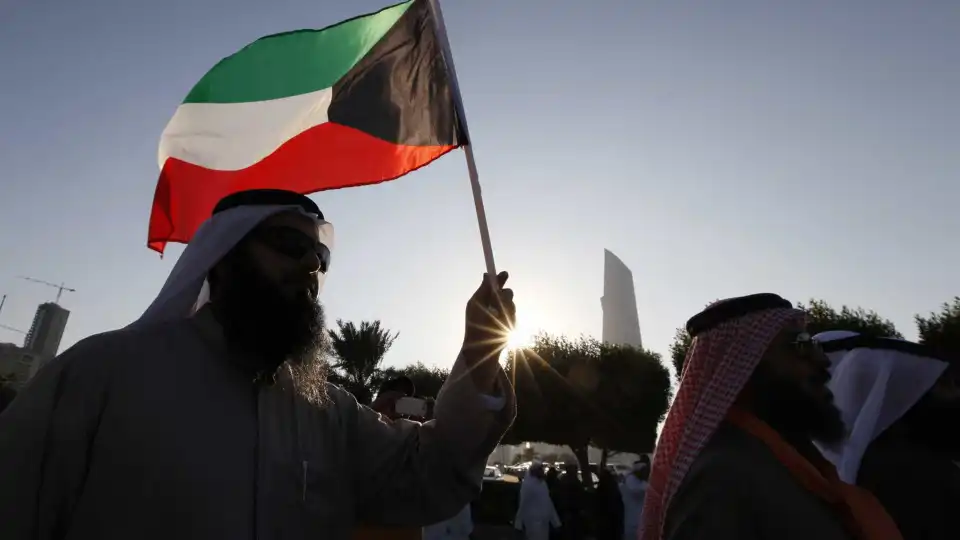Kuwait emir dissolves parliament, suspends 'articles of constitution'
The emir of Kuwait announced on Friday the dissolution of Parliament, the only democratically elected one in an Arab monarchy in the Persian Gulf, and the suspension of "some clauses of the Constitution", in order to "safeguard the country's higher interests".

© Reuters

Mundo Kuwait
Mishal al Ahmad al Sabah said, in a televised speech, that he had issued a decree with "this difficult decision", which will be in force for "a period not exceeding four years".
During this period, the head of state himself and the prime minister "will assume the powers delegated to the National Assembly (Parliament)", he stressed.
The decision was made due to the interference of some deputies in the powers of the head of government "and even the emir", in the context of the constant confrontation between the executive and legislative powers, he argued.
“We do not allow democracy to be exploited to destroy the country,” Al Sabah stressed during his speech, also reproduced by the official Kuwait news agency, KUNA, and quoted by the Efe agency.
“Some [deputies] even interfere in the emir's powers and in the election of his crown prince, forgetting that this is an explicit constitutional right,” added the head of state.
Al Sabah also denounced the interference of some in the election of ministers to form a government in the country, "forgetting, out of ignorance or deliberately, that electing the prime minister and ministers is a constitutional right of the head of state" that "no one can interfere with".
This decision comes after the emir appointed a member of the family, Sheikh Ahmad al Sabah, as prime minister on April 15, and was in charge of forming a new executive, the second cabinet since the monarch himself replaced the power in December.
The previous government, which lasted a few months, resigned after the parliamentary elections held on April 4.
Mishal al Sabah also decided, on April 21, to transfer his powers "during his absence" to the then newly appointed prime minister, a measure that, he assured, will remain in force until the emir, who took power on December 20, after the death of his half-brother, Nawaf al Ahmed, appoints a crown prince.
Kuwait has historically been marked by serious disagreements and constant tensions between the executive and legislative powers, which in recent years has been largely dominated by Islamists.
This ongoing confrontation led the new emir to dissolve the chamber in February, after implicitly accusing some parliamentarians of "violating constitutional principles" by making "deliberate use of experimental and uncontrolled expressions".
During the term of the previous emir (2020-2023), the country had to form seven governments due to the ongoing confrontation between parliament and the executive, characterized by mutual accusations of corruption and nepotism.
Kuwait is the only Arab country in the Persian Gulf that has a democratically elected parliament, which exercises control over the government.
The other states in the region, such as Saudi Arabia, Qatar and the United Arab Emirates, have advisory councils with no legislative powers or control over the government.
Read Also: Emir of Kuwait appoints new prime minister after elections (Portuguese version)

Descarregue a nossa App gratuita.
Oitavo ano consecutivo Escolha do Consumidor para Imprensa Online e eleito o produto do ano 2024.
* Estudo da e Netsonda, nov. e dez. 2023 produtodoano- pt.com



